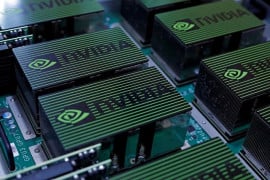
On the noon of October 28, 2009, a huge bang rocked Peshawar. Minutes later, TV cameras zoomed in on a crowded locality in the heart of the interior city of Peshawar, focusing on plumes of smoke, flames and scattered bodies.
The area was Charri Koban Bazaar -- the meeting point of the Meena Bazaar and Kochi Bazaar - and was mostly filled with women. The blast, the deadliest attack in the history of Peshawar, claimed around 120 lives and left more than 200 injured and traumatised for the rest of their lives.
Two years later, the locality seems to have risen from the ashes. The damaged buildings have been renovated and the mosque which was completely destroyed has recently been reconstructed.
There is brisk activity in the narrow streets of Meena Bazaar and Kochi Bazaar, with women once again seen haggling with traders over prices. The area is filled to capacity and one has to fight for even a single inch.
But people have not forgotten the attack.
“Thirty-two traders were killed in this small area,” said Haji Nur Din, a trader who sits at his shop at the entrance of the Meena Bazaar. Din and his son were seriously injured, while his shop was completely destroyed in the blast. He was about to depart for Hajj on October 29, a day later; however, he spent the next 15 days in the hospital.
“I only remember a deafening sound and then flames leaping into my eyes,” he told The Express Tribune, adding that four women who had just entered his shops were killed in the blast. He was “fortunate” just to survive.
“Time passed by and left only scars, and it is the same with that blast,” he said.
Usman Khan, another trader, was also injured in the attack and is still carrying scars on his face. His eyes were damaged and now he wears glasses to hide his scarred eyes. He rolls his cuff over to show injuries on his arms. “Three women died in my shop.” The shop right next to his was completely obliterated.
When asked how the area has changed following the incident, he said that life is a struggle for those who survived; “[but] one does not get enough time these days to reflect at the past”.
Umar Lal lost his father, brothers and his tea stall business. For the past two years, he is trying to make a living selling chocolates on the footpath in front of where he ran the tea stall. The ghost of that day still haunts him, as he fights over his father’s house with his uncle. Perhaps for people like Umar, testing times are not yet over.
On Friday the traders arranged a memorial service for those who perished in the blast and prayed for their fallen comrades.
Din said, “We prayed to God to protect everyone from such atrocity.”
Published in The Express Tribune, October 29th, 2011.
COMMENTS (2)
Comments are moderated and generally will be posted if they are on-topic and not abusive.
For more information, please see our Comments FAQ


















1713904359-0/burn-(1)1713904359-0-270x192.webp)














1713853507-0/MalalaHilary-(2)1713853507-0-270x192.webp)







It makes me sad. Lots of people lost their lives, many many homes destroyed. This militancy and terrorism is getting on our nerves. Our people need some peace.
The price that we are apparently happy to pay, to stop the construction of Indian consulates in Afghanistan.